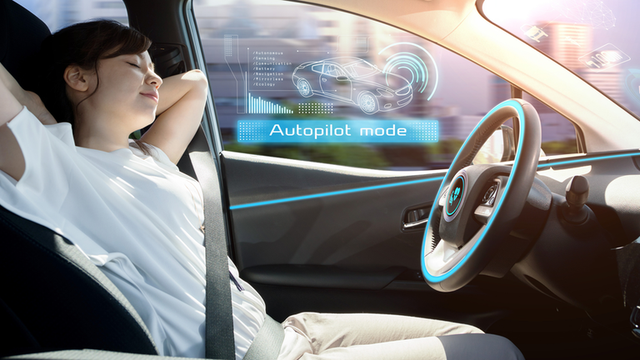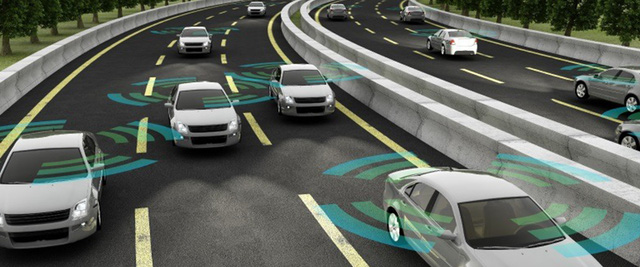Big Tech on a new battlefield: Self-driving cars. This is how Jeff Bezos, Tim Cook and Sundar Pichai hope to take over a $ 290 billion market
- Tram Ho
Today’s tech giants grow in tandem, finding success in fast-growing markets with products that are easy to use, look good, and stay away from each other. But as these companies expand, they will have to “collide” more often if they want to. Alphabet, Amazon and Microsoft had to follow Apple in the smartphone business in the 2010s. All four developed a cloud service. Now, Big Tech’s interest is focused on an area seen as the world’s biggest challenge: self-driving cars.
Google entered the autonomous industry in 2009 with Project Chauffeur, which later became a subsidiary of Alphabet under the name Waymo. At the time, venture capitalists raced to pour money into emerging startups to challenge Google.

Apple recruits Tesla employees to work on its secret project. Amazon also invests in a self-driving car startup, Aurora Innovation, whose CEO is one of the founding members of Project Chauffeur.
It is not difficult to explain why self-driving cars are so interested. Globally, consumers and businesses buy more than 70 million vehicles annually. Any company perfecting self-driving car technology will have a huge customer base with a compelling ad: fewer accidents, more time to work or relax. In 2019, Goldman Sachs predicts the auto-driving technology market will be worth $ 290 billion by 2035.
“Big Tech wouldn’t care if it weren’t for the big market,” Gene Munster, managing partner of Loup Ventures, told Business Insider. He said it’s not hard to imagine the market for autonomous driving technology will be worth up to $ 5,000 billion. For most industries, the figure is below $ 1 trillion.
But in recent years, creating a safe, efficient and flexible self-driving system has been a formidable challenge. Previous predictions that commercial self-driving cars would be ready in the early 2020s were false. Now, more conservative predictions are made. Uber and Lyft abandoned their efforts to create a self-driving system, transferring their research to Aurora and Toyota’s Woven Planet subsidiary.

Although there are many so-called autonomous vehicles operating in Arizona and Nevada (USA), the rapid proliferation of self-driving cars is still a question no one dares to answer with certainty. According to Gartner, the hype surrounding autonomous vehicles faded as the industry fell into disillusionment.
Of course, Big Tech has yet to give up ambition. In a way, they’re pushing it harder than ever.
Waymo was seen as a leader when it launched its first self-driving ride-hailing service in Arizona in 2018. But the service, called Waymo One, has yet to expand to other regions. However, Alphabet’s commitment is clearly visible.
“We’re taking a long-term approach that focuses on creating the best and safest experience,” Alphabet CEO Sundar Pichai said at its 2020 annual shareholder meeting. Amazon, meanwhile, continues to buy one. The startup is Zoox in 2020. Some predict Amazon will shift Zoox’s focus from robotaxi to delivery – which has less of a technological challenge. Even so, the Zoox CEO said Amazon will not interfere with their plans.
Apple hides its plans quite a bit, but Bloomberg and Reuters both report that it is still developing autonomous driving technology. Microsoft also entered the field in January 2021 when it invested in Cruise, the self-propelled car subsidiary of General Motors.
Munster says Big Tech’s patience is not surprising because they are known for their long-term thinking and long product development cycles. Apple built iPad prototypes for at least six years before announcing the first generation.

This patience comes from two factors. First, the success that Alphabet, Amazon and Apple have in their core businesses allows them to stockpile huge amounts of cash to use in developing self-driving cars. Second, Big Tech has fewer opportunities to find new customers, so they have to look for new businesses but big enough to invest and grow.
Self-driving cars are therefore not a frivolous and flashy project. For the tech giants, that could be the key to keeping a new generation of users in mind.
Source : Genk
